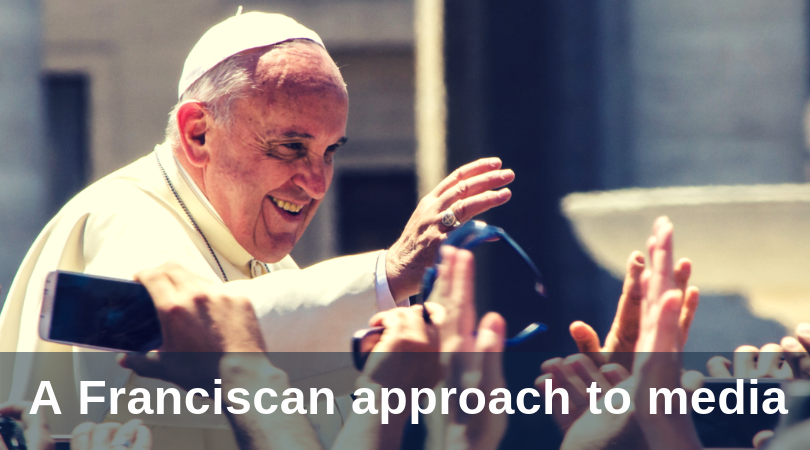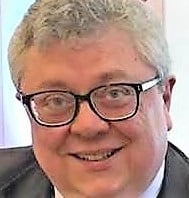
Setting aside the missteps in virtue one often finds in sit-com scripts, the show “The Good Place” offers worthy insights about good and evil from a quirky perspective of the afterlife.
In the recent episode “Book of Dougs,” the character played by Ted Danson examines heaven’s files on two deceased “Dougs.” It turns out one Doug, who lived recently, forfeited a lot of scorecard points that could have counted toward his happy destiny. He had unintentionally contributed to environmental damage and exploitative behaviors, among other things. Danson concludes, “Every day, the world gets a little more complicated, and being a good person gets a little harder.”
Living in a complicated, polarizing climate
This scene captured in fiction a wise critique recently made of modern society: In a globalized, information-immersed culture, where unlimited moralism and relativism try to co-exist, the interconnected corruptions we’ve discovered expand the range of our potential moral responsibility and burdens of guilt. At the same time, we’ve sidelined God, losing that ultimate source of forgiveness, resulting in frustration and polarization.*
I’ll amplify and generalize: It sometimes seems we’re blaming everybody for everything, driven to make God-like judgments when wrongs and failures offend our sense of justice. We are all at risk of standing accused, either as individuals or as members of unlikable categories.
At Mass, we admit to serious imperfections and to “my most grievous fault.” But in the secular liturgy of national news media, these deficiencies rise to an even higher threat level. Our cultural discourse adopts labels that go beyond “sinner” to include “extremist” or “idiot” or worse. Weaponized name-calling divides us while we strive to exemplify integrity.
Guidance from Pope Francis on fake news and social media
Pope Francis recognized humanity’s struggle to demand accountability amid massive frailties when he released his 2018 World Communications Day message—“The Truth Will Set You Free”—a year ago this week. Francis criticized “fake news” attacks but also pointed out how we all need to exercise the best journalistic values today because we’re all information gatekeepers when we publish online.
The pontiff cautioned against spreading disinformation that erodes trust and insults human dignity. It is good to seek justice, so he urged rebuilding compassionate communities and cultivating a marketplace of ideas that prizes reality and discerns sharable values. As discussed in a book I published last year, our pope drew heavily upon the healing words commonly called the Peace Prayer of Saint Francis of Assisi.
The humble, sacrificial love in this prayer offers sustainable ways to become instruments of peace. Another aid is the Serenity Prayer, embracing moral diligence while understanding everybody’s limitations. The Holy Spirit’s gifts and fruits, plus redemption through Jesus Christ, help wonderfully!
How to make it easier for people to be good
The Catholic Church is blessed to share this Good News of the Gospel, which overcomes bad news and mad news. I suggest framing it more intentionally to answer the dilemma Doug faced on TV: As social issues become more complex and urgent, can we make it easier for people to be good and counteract wrongdoing?
Be more imaginative - We in the Church can be more proactive in answering yes to the above question. Gatherings in parishes and elsewhere could increase our attentiveness to the pain and fear of people burdened by name-calling and greater evils. We could group-watch news programs and popular culture, then model follow-up dialogues, welcoming many voices—from the pews, including family members, and from the marginalized we encounter.
Seek fellowship and engagement - Our Church is global and local. We can foster fellowship opportunities that cultivate agreement on principled priorities and strategies. We “Dougs” can generate and share news about community consciousness at grassroots levels, pursuing truth in charity. Information about the successes of subsidiarity will engage, rather than enrage, others.
Start small, leave the rest to God - This quest for virtue requires relationship and cooperation with a God who isn’t me or you. Jesus taught, “No one is good but God alone.” Acknowledging and trusting transcendent wisdom brings mercy and understanding, not shame or disempowerment. We can only address the world’s complexity incrementally, in modest but meaningful ways.
Accept your label from Christ - The renewal of news through the Good News does not promise that we won’t be grouped or labeled. But let’s take valid identity from the Lord. “Blessed are the peacemakers, for they will be called children of God.”
*For quotes more exact than my notes and deeper wisdom, watch the whole talk by Wilfred McClay. It was part of the “Higher Powers" Conference hosted at Notre Dame in 2018 by the de Nicola Center for Ethics and Culture.
Photo credit: Alfredo Borba 2014, some rights reserved


